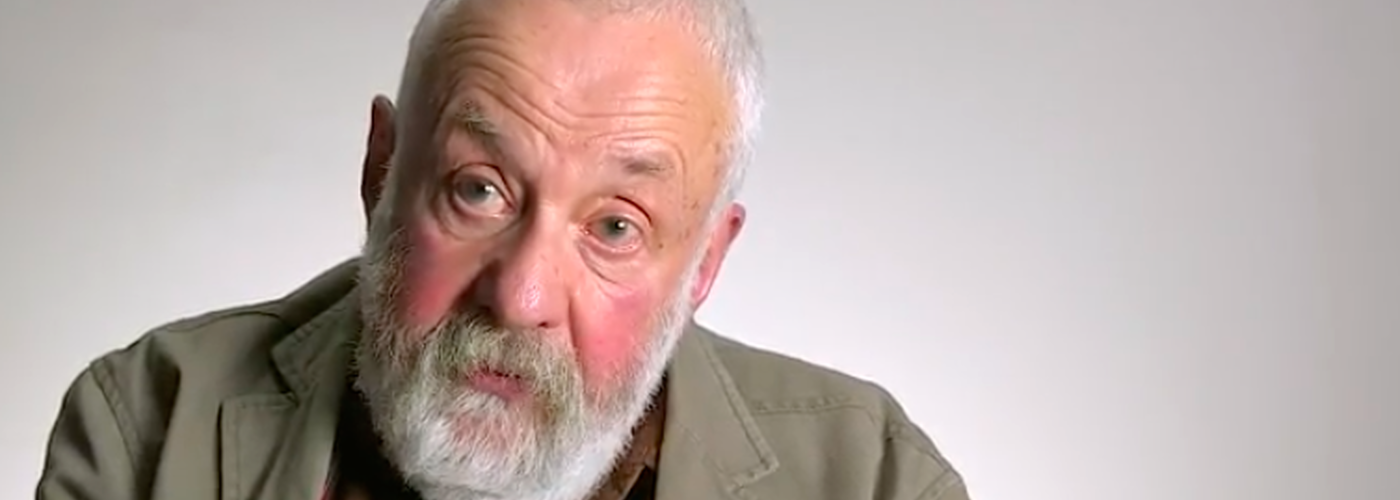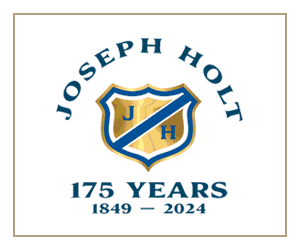Danny Moran speaks to the Salford-born director of Peterloo as the new film hits cinemas
It’s about twenty minutes in to the press screening of Peterloo that I realise I will be rooting for the yeomanry. There, I said it. The civilian militia have copped for much of the flak when it comes to accounts of Manchester’s great historical tragedy…inasmuch as the history books have paid any attention at all…what with the booze, the lack of training, the fancy silks and the free-and-easy way with the freshly-sharpened sabres.
But when the moment finally arrives for these dandified grocers and tavern keepers to ride in and take the class war to the lower orders it’s hard not to feel a sense of relief at the curtailment of a Mike Leigh production which has somehow gotten wildly out of hand: vast hordes of minor characters developed meticulously through character-based improvisation, researched to within an inch of their inner lives, sent out into B&Q to buy two small trowels and a grouting sponge while “in character”, before being pushed out in front of Leigh’s coldly watchful camera, each of them jabbering away endlessly about t’corn laws and t'vote.
‘Appen this was a massacre two long hours in the brewing, you think to yourself.
“I think it’s outrageous. We’ve complained.”
You can count the ways in which the film takes its toll on the backside. The endless speeches about meetings about speeches. The seeming spectacle of fine actors like Maxine Peake and Rory Kinnear straining valiantly to breathe fire into dialogue torn paragraphs at a time from remaindered textbooks. The base cartooning of cruel nobs and honest workers which seems to serve as moral index to the nineteenth century. The abject failure to create a picture of Manchester as a coherent, cohesive place other than one caught in glimpses of mill gates, street corners and ginnels which look like the locals have swept them clean because they knew that the cameras were coming. And then that final, flustering scene, loosely busked, computer aided…cut price carnage to grace a Wednesday night on ITV3 rather than a night out at your local out-of-town magic-plex.
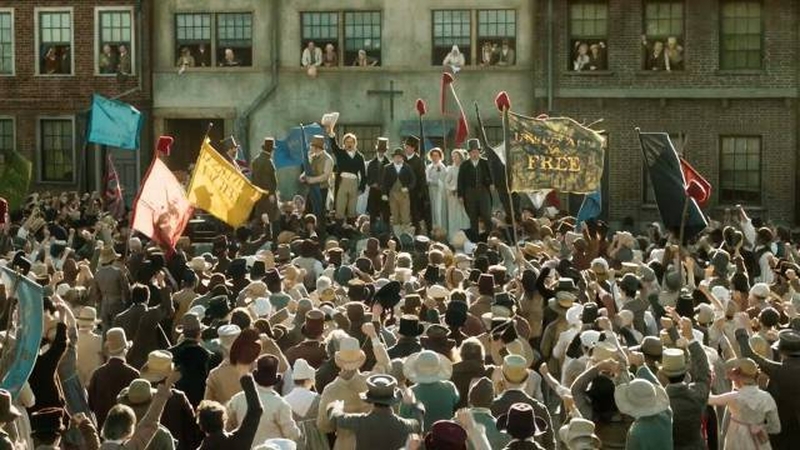
An appointment with the man responsible, directly afterwards, poses an age-old problem, then. What the fuck do you say? My conscience is a scratch post. Today, after all, is a prestigious occasion, the movie’s premiere just hours ahead of us. Local filmgoers will at last, after fifty long Leigh years, have the chance to fete an icon’s cinematic homecoming. The whole enterprise is as worthy as a donkey’s orphanage, a clear staging post along the road to seeing an historic injustice recognised.
So the time to lock horns with the great man over well-worn anti-Leigh tropes - condescension towards his characters, lack of storytelling oomph - may not be now, sequestered as we are in a back room at The Refuge where a parade of hacks are being led in, one by one, to farm quotes from the udders of a public relations opportunity.
As milkings go, Mike Leigh on the day of his UK Peterloo premiere proves a slightly bored if generally compliant animal, who does little to dispel the sense of languor surrounding the project. What’s more, in opting to swerve the critical flash points in favour of exploring some finer details of the production - cinematography, costume, make-up, production design - in the hope that the Confidential reader’s viewing experience may be enhanced by such technical insights, there follows a persistent tug at an unforthcoming nipple.
“So…” I say, once hands have been shaken and the director has re-slumped himself into a conference room chair. “A long day for you. And a proud one, I’m sure. How are you feeling?”
It’s very moving to be sitting here
Blinking Back
There’s a flicker. For a fraction of a second the mouth shapes as if to frame a genuine reply, before he checks himself. The question is close enough to the one he wants to be asked - about the film, as opposed to himself - for which he has an answer prepared. So he checks himself, starts again, and decides to play it by the script.
“Actually…” he says, “It’s very moving. Apart from anything else, you and I know, sitting in this spot, that people were trapped right across here when it all kicked off. Right here. We’re on the site of the whole thing. And it’s very commendable of the London Film Festival to have a premiere screening two hundred miles away from the capital. It’s very moving to be sitting here where two hundred years ago people were running about almost exactly on the spot where we are now...”
The prospect of Mike Leigh on autopilot is something of a new proposition, truth be told. Discussing Topsy-Turvy at the Cornerhouse in ‘99 he was prickly and fierily engaged with the notion that his surprise Gilbert & Sullivan pic was simply a variation on the sitting room power struggles which had gone before. All or Nothing in ’02 found him reflective at his Soho offices in the aftermath of a mid-life split from partner Alison Steadman. Promoting the abortionist’s tale Vera Drake at the Malmaison in ‘04 he was bullish at rumours of Academy Awards nominations, and keen to signpost his readiness for any acclaim he may have been due.
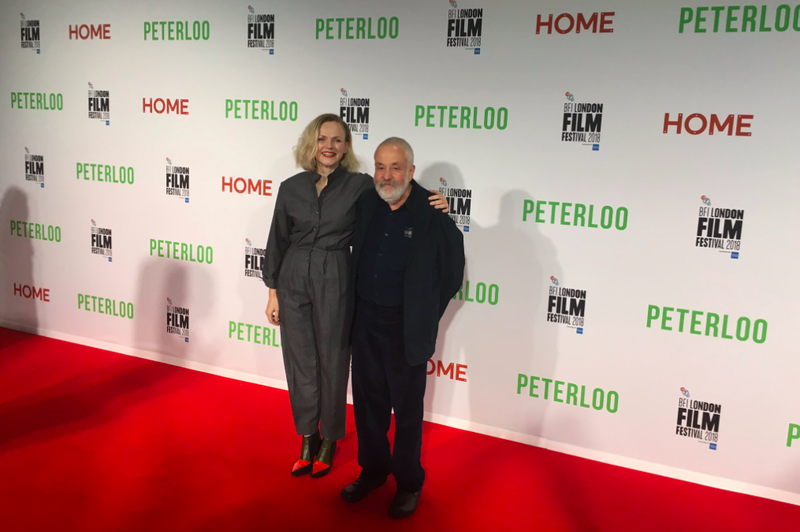
Now, at seventy-five, the occasion finds him older and more in tune with the rhythm of the treadmill. The polytechnic safari suit as rumpled as ever, and beneath the beard the subsidence of the face a landslide almost done, above whose slopes two wary eyes peer sharply back at you, never entirely confident that the sentence you yourself are constructing will not reach a terminus in crass stupidity.
Behind them lie the paradoxes of the likes of Abigail’s Party, Meantime, Life Is Sweet, Naked, Secrets and Lies, Topsy-Turvy and Mr Turner…cheese-on-sticks skewerings of middle class suburbia, scalding snapshots of council estate malaise, mordant pictures of lives lived heavy-heartedly in bygone days.
In the forty-eight years since Albert Finney stumped up the fourteen grand needed to fund the first of these, Bleak Moments, the Broughton doctor’s son - North Grecian Street Primary, Salford Grammar - has confirmed his place as one of British cinema’s most eminent voices, yet never quite broken free of the prejudice that his wonkishly workshopped dramas are somehow part Harold Pinter, part Acorn Antiques.
I did not have any film in mind at all. I don’t make films about films.
Yes, comrade!
“I was interested to read recently that two films which were at the back of your mind when you made Peterloo were [1925 Soviet propaganda film] Battleship Potemkin and [Japanese master Akira Kurosawa’s 1985 King Lear adaptation] Ran.”
“No, I didn’t say that,” he counters, with just a soupçon more patience than might once have been proffered. “I was asked whether I had particularly looked at any films and I was asked about Potemkin. And what I said was I don’t need to look at Potemkin, or Kurosawa’s Ran, because they are there in my DNA, and I take them for granted. So actually I did not have any film in mind at all. I don’t make films about films.”
This seems almost a shame, given the misfire he’s actually produced. If only he’d vaulted onto the table, figuratively at least, and exclaimed: “Da! Absolyutno, tovarishch! I was so activated by the subject matter that I wanted to draw on the post-revolutionary passion of Soviet cinema to explain history through the concatenation of activist groups and the mighty brushstroke of propagandist caricature!” Even if he knew the film was bobbins and he was just trying it on with a bit of kidology, it might have managed the expectations so savagely shredded by the experience of actually watching the film.
“So the Potemkin thing…” I say. “That’s just something some film journalist has said to you and then he’s written it up as though you’ve said it yourself?”
“Yes.”
“Okay.”
Well, if can be difficult to find something to write.
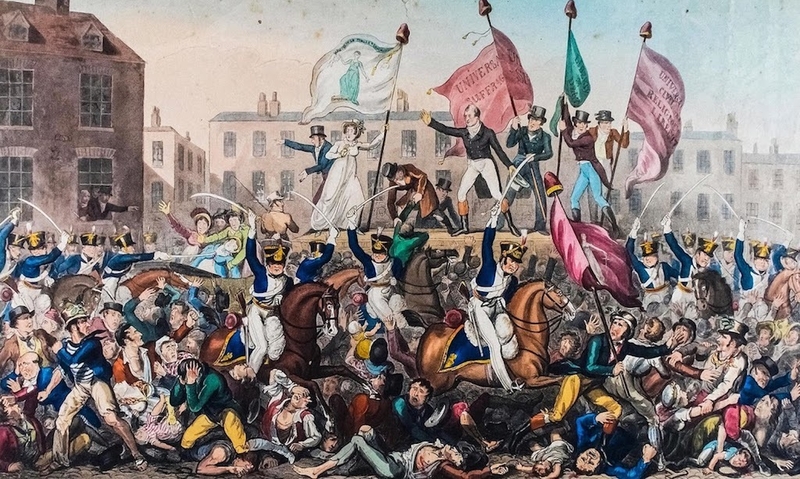
Maybe if I keep asking him these ‘production’ questions, though, the interview will eventually warm up.
“How did you conceive of the way the film would look, in advance of shooting it? What were your discussions with your cinematographer, Dick Pope?”
He thinks about this for a moment.
“Well, when we made Naked, we were very…it had to be nocturnal and bleak, and at that time because we were shooting on film we did what’s called a ‘bleach bypass.’ It takes out part of the process and desaturates the film.”
“Makes it look monochrome.”
“Yes. Then when we did Happy-Go-Lucky I said ‘this film needs to burst with colour and energy’, and at that moment Fuji had brought out a new film stock which is good for primary colours, so we shot it on that. When we did Mr Turner we obviously spent a lot of time looking at Turner’s paintings and that informed the way we shot that film. But with this it was more about a sense of time and place…”
He trails off, seeming momentarily to deflate.
“I don’t really know that I can answer what I think you’re asking me because we just arrived at it,” he says in the end.
I press on.
“Did you have to adapt your famous working method, given the size of the cast? I know that with Mr Turner you began with Timothy Spall improvising the painter as a new born baby with Paul Jesson cradling him as his father."
For some reason the drawbridge seems to spring up.
“This film was made in the same way,” he says, shortly.
“Far greater numbers though?”
“Hard work. We spent six months working through all the characters. Neil Bell [as poet and radical Samuel Bamford] has done the walk from Middleton to Manchester as part of his research.”
“What about the synergies between costume, make-up and location? I know you’ve spoken of their importance in the past?”
There’s a kind of double-blink. I’d hazard a guess he hasn’t an answer prepared for that corker.
“Well…it’s difficult. The big question, obviously, was going to be where do we do St Peter’s Field? And for a while we were stumped. At the outset I said, ‘obviously we should shoot this in Manchester’ but in the end not one frame of the film is shot here. But the big thing [massacre] was shot at the fort at Tilbury, because we could take that over, build on it and control it and…you know, with production design and the CGI I don’t think we’ve done a bad job at all.”
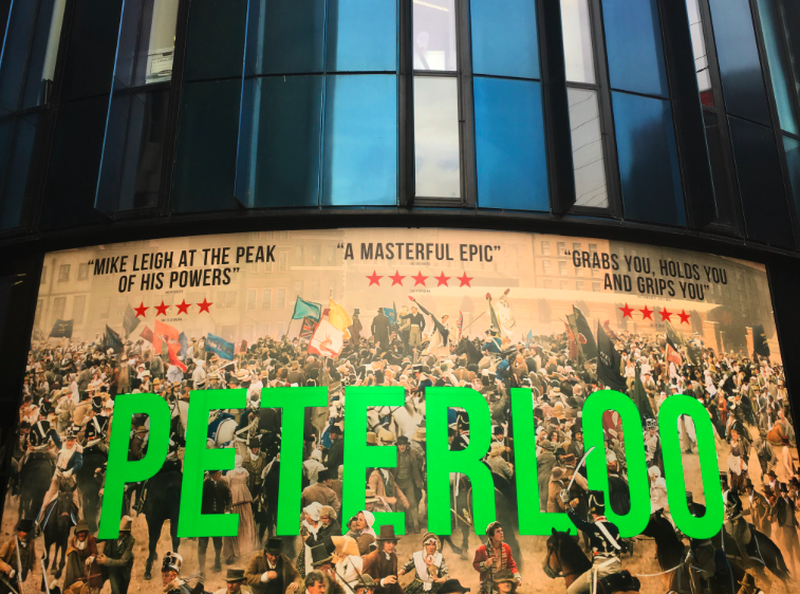
Well it’s an insulting review. And it misses the point about so many things...
Hillsborough
In the end, he explains, they rehearsed and shot the climactic scene on just three cameras. The question as to why he chose not to storyboard it shot-for-shot is another red herring which has “talked itself up” in the film press. It’s not the way he works, he says. It would have been completely out of the question.
Asked for contemporary resonances to Peterloo he grouses about apathy among the voting public – turnout figures for Manchester Central are among the lowest in the land, of course. “Those guys at Peterloo…what would they think about people who have the vote but don’t use it?” It’s never fair to criticise a man for not second guessing the answer you were looking for, but there’s no mention of the likes of Hillsborough among the thoughts he has to share, despite the years he’s had to ready them for media discussion.
As with the football tragedy, Peterloo is a tale of the constructive killing of innocents on the part of the ruling class: a remote Home Secretary who’d never visited the north of England; a Commander of the Northern Forces with his eye off the ball at the Pontefract races; a reactionary magistracy with too much local power, terrified of French-style revolution; a surfeit of spies and police informants telling their handlers what they thought they wanted to hear; a rookie militia with grudges against their neighbours; a fateful order sent simultaneously to both wings of the armed forces, one of which arrived earlier than the other. Though the film itemises these factors it fails utterly to dramatise them.
Take a look at Jimmy McGovern’s 1996 film about the Hillsborough tragedy, or Paul Greengrass’s 2002 take on Bloody Sunday. Hardly like-for-like, of course, but while the former - no masterpiece - demonstrates how you can get under the skin of such an event by sticking resolutely with the perspective of the victims, the latter shows how the perpetrators can be visualised via economy, a verité style and understated, naturalistic performances as a handheld camera gets in among the killers.
Peterloo falls – indeed plummets – between two stools. What’s most damning about it is the blind arrogance it reveals in its conception. The thought that you can take that famous Leigh method and apply it to the surfaces of a history primer; that the camera can penetrate the inner lives of legions of bit-part characters without their ever being painted in in the script; that the conventions of a telefilm, where characters sit around and converse in front of a static lens, can fill in for that unique relationship between eye, camera and editing suite that is genuine big screen acting; that you can just jump in the car with epicness on your mind, buzz up the M1 and make Abigails’ Party-loo.
“You got a savaging in Sight & Sound,” I say, finally. “Did you read it?”
Getting your film compared with Heaven’s Gate in the BFI’s house mag is quite a panning so it seems appropriate to ask.
“Of course,” he says, lips pursed like a broken trowel.
“What did you think?”
“I think it’s outrageous. We’ve complained.”
“Why?”
“Well it’s an insulting review. And it misses the point about so many things. Well you’ve seen the film and read the review..?”
“What does it miss the point about?”
There’s a pause.
If only he’d said it’s supposed to be like Battleship Potemkin.
“Actually,” he says. “I don’t really want to talk about it.”
Peterloo is in cinemas from Friday 2 November
Main image credit: BFI Youtube





